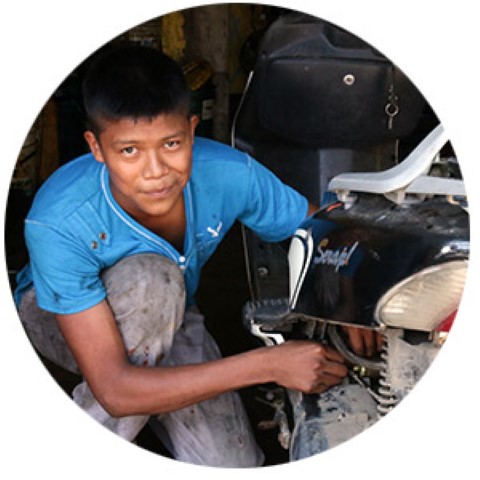Global poverty and employment at a glance
- Roughly 40% of male youths (ages 15-24) currently work in the global labor force, while just 27% of young women are employed.
- According to the latest data, the total number of unemployed youth is 73 million – a slight recovery from the dip that occurred during the pandemic.
- More than one in five young people are not employed, in school or training for work in the formal job sector.
- Although the gender gap in global primary and secondary school enrollment rates has almost entirely closed (90% for males/89% for females), secondary school completion rates are 8% lower for girls than boys.
- The cost of NOT investing in girls’ education is astronomical: A recent World Bank study estimates that limited educational opportunities for girls costs countries between US$15 trillion and $30 trillion in lost lifetime earnings.
Does 15 seem too young to have
a full–time job?
In many impoverished countries, youth drop out of school and enter the workforce, taking physically demanding jobs for little pay to help contribute at home.

TERMS TO KNOW: “INFORMAL EMPLOYMENT”?
Informal employment defines jobs, like day laborers, that aren't regulated, taxed or protected. Workers may face dangerous conditions, discrimination and unpaid wages if they choose to take on this type of employment. In Guatemala and Honduras, up to 80% of working youth (age 15–24) are informally employed and choose to do so out of necessity to help provide for their families.

Ready-Set-Grow
Our programs prepare youth to take on in-demand jobs in their communities. Workshops and programs teach our youth how to search for a job, networking skills, résumé building and interview prep tips.
Learn more about Employment
Sources
- World Bank Employment Policy Primer, 2010
- UN WESO, 2015
- UN FAO, 2014
- World Bank eLibrary. “Returns on Investments in Education,” 2002
- UNESCO: EFA Global Monitoring Report, Youth and skills: Putting Education to Work, 2012


